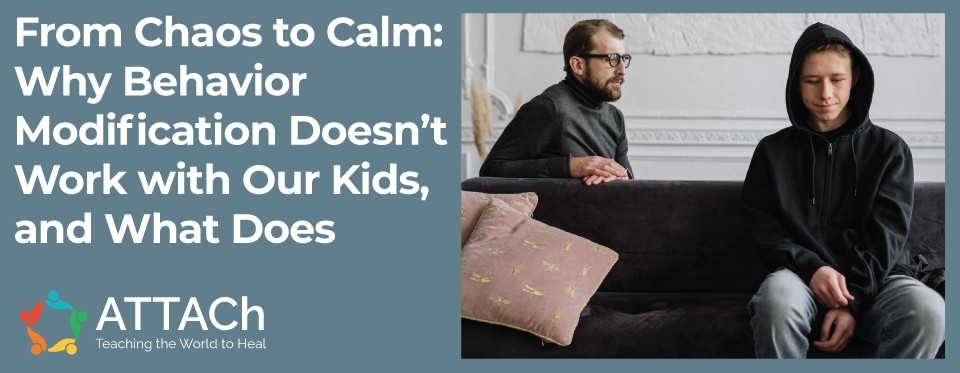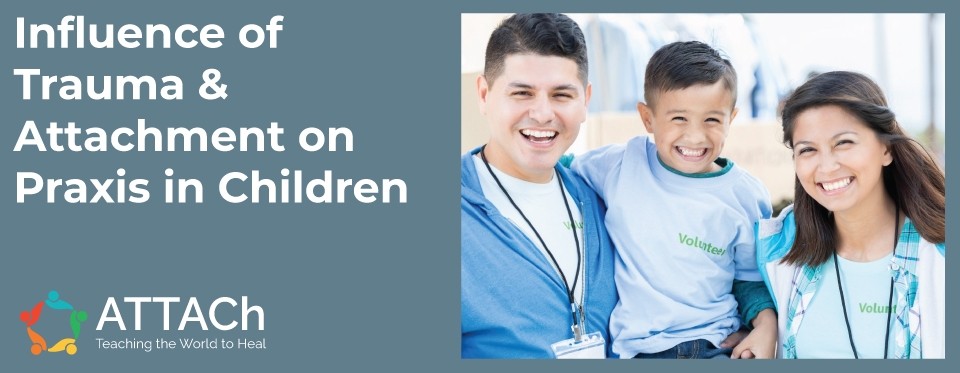ATTACh has developed training courses with proven methods to help improve symptoms of trauma and attachment in children of every age. ATTACh equips professionals, parents and others who care for children with the education, training, supportive services and resources to restore families, give back hope and teach others to heal children.
For many families, a faith community is considered an important source of support and healing. Discover how faith communities can build on their current practices to gain new awareness and skills, creating a safe, enriching environment for families, children and individuals living or working with attachment disturbances. Participants will be able to: (1) Describe three faith community practices that are considered in the study of interpersonal neurobiology; (2) Identify three or more current practices of your faith community that can assist in supporting healing and connection; (3) Identify any of your faith community’s current practices that do not support healing and connection; (4) Create a preliminary plan for designing new faith community practices that specifically support healthy attachment; (5) Discuss ways to introduce new strategies to your faith leadership; (6) Practice at least two new skills that address the needs of children and families living with challenging attachment adaptations.
Bringing back the joy in parenting!
Through the lens of mindful and trauma sensitive care, we will explore the attachment challenged child’s view of the world, life, love, family and relationships. We will find answers to the questions; ‘why does my child do what she does?’, ‘how can I more effectively engage with my child?’, and ‘how do I maintain my sanity while doing so?’
Other topics that will be briefly explored:
-The impact of shame in healing
-Brain based restoration of emotional regulation
-Sensory based interactions that bring healing
Join us for an in-depth presentation led by JoAnn Kennedy, OTD/MS, OTR/L, on sensory processing in children with attachment and trauma issues.
This presentation will examine tactile processing as a neural foundation of social and emotional function; suggest patterns of tactile processing problems in children recovering from trauma and dysfunctional attachment; discuss ideas for treatment and invite participants to try tactile experiences; and illustrate these concepts with a case study of child-parent tactile interaction.
Participants will be able to:
- Identify the reason tactile interaction is a foundation for social/emotional function in children;
- List three patterns of tactile dysfunction seen in children with trauma and attachment difficulties;
- Plan interventions for children with tactile under-responsivity, over-responsivity, and tactile trauma triggers;
- Plan collaborative interventions for children with severe trauma and resulting tactile dysfunction.
Online training with a focus for professionals conducted by Lois A Ehrmann, PhD, LPC, NCC.
Part one focuses on a unified definition of trauma and reviews the DSM-5 criteria for PTSD in both adults and children. The origins of trauma are explored in a discussion of the Adverse Childhood Experiences longitudinal study and then the importance of comprehensive and effective assessment of all family members is discussed. Tools for assessing different family members and family dynamics are further presented.
Part two will review four empirically validated models: Attachment Focused Family Therapy, Eye Movement Desensitization Reprocessing, Neurofeedback and Internal Family Systems Model of Therapy.
Teresa May-Benson, ScD, OTR/L, FAOTA, presents.
The relationship between sensory processing, complex trauma and attachment problems in children is well established; however, the influence of trauma on praxis, motor skills, and play in these children is poorly understood.
This session will examine these relationships, highlight signs of praxis problems and provide practical hands-on intervention strategies






